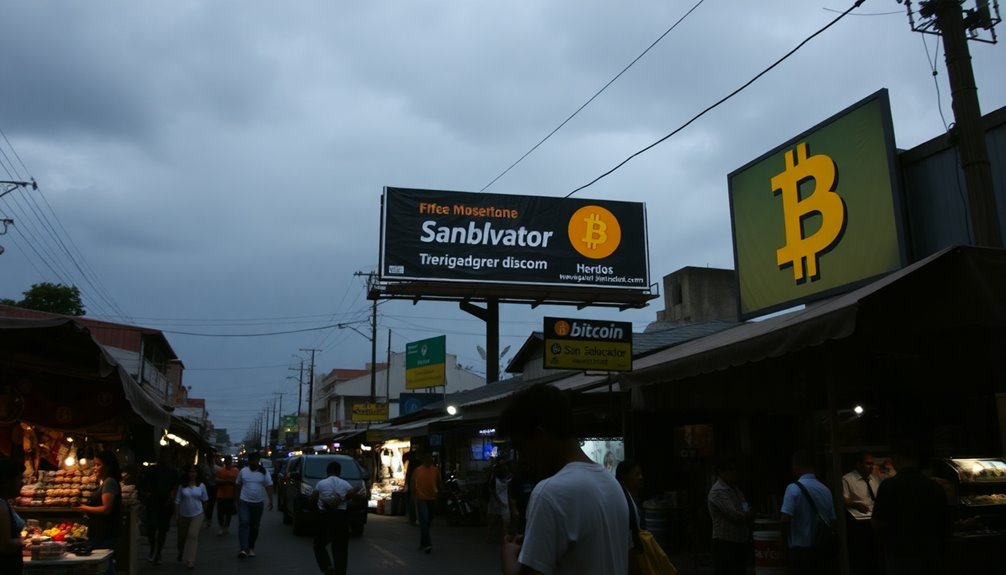You've probably heard by now that El Salvador has officially removed Bitcoin's legal tender status. This move signals a major shift and raises some serious questions for cryptocurrency enthusiasts everywhere. With the government's decision influenced by the International Monetary Fund, it begs the question: what does this mean for the future of digital currencies in mainstream economies? The implications could be far-reaching, and the story isn't over yet.

As El Salvador shifts away from its bold experiment with Bitcoin as legal tender, many are left questioning the future of cryptocurrency in the nation. In 2021, El Salvador made headlines by becoming the first country to adopt Bitcoin as legal tender, mandating businesses to accept it alongside the U.S. dollar. While the move aimed to bolster financial inclusion, the reality turned out to be quite different. With a mere 15% of the population trusting Bitcoin and 70% opposing its adoption, public reception was tepid at best.
El Salvador's experiment with Bitcoin as legal tender has faced significant public skepticism, with only 15% support for its adoption.
The government launched the Chivo Wallet to facilitate transactions, but the uptake was dismal. By 2024, only about 8% of Salvadorans used Bitcoin for payments. This limited adoption, combined with Bitcoin's notorious price volatility, raised significant concerns for businesses and the International Monetary Fund (IMF). The IMF pressured El Salvador to reconsider its Bitcoin policies, citing financial risks that could jeopardize the nation's economic stability.
Amid these pressures, the Legislative Assembly took action to revise the Bitcoin law. The changes officially removed Bitcoin's status as legal tender, allowing its use to become entirely voluntary for both businesses and individuals. No longer could Bitcoin be used for tax payments or government fees, signaling a significant retreat from the government's initial ambition. The removal of Bitcoin's legal tender status was a crucial step in aligning with IMF recommendations for economic reforms.
The reforms were crucial for securing a $1.4 billion loan from the IMF, highlighting the financial stakes involved. For businesses, this shift means they're no longer mandated to accept Bitcoin, which alleviates some of the financial risks associated with its volatility. Many had preferred cash and USD transactions, valuing their stability over the uncertain nature of cryptocurrency.
The new regulatory framework aims to strengthen oversight of the Bitcoin ecosystem while mitigating the risks that had been highlighted by the IMF. Public reaction to the changes has been mixed, though skepticism remains prevalent. While the decision had minor influence on global crypto markets, it marked a symbolic shift for those who believed in Bitcoin's potential.
Corruption and money laundering issues during Bitcoin's rollout only added to the public's mistrust. Despite these setbacks, the government appears committed to maintaining its Bitcoin reserves, signaling that the story isn't over yet. For cryptocurrency enthusiasts, El Salvador's pivot raises critical questions about the viability of Bitcoin in mainstream economies.









